MercoPress. South Atlantic News Agency
Tag: Iran
-
Saturday, July 20th 2019 - 18:02 UTC
Iran Guards seize British flagged tanker; foreign secretary Hunt warns of serious consequences
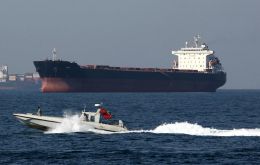
Iran's Revolutionary Guards said on Friday they had seized a British-flagged tanker in the Strait of Hormuz for breaking “international maritime rules” as tensions mount in the highly sensitive waterway.
-
Thursday, July 11th 2019 - 18:54 UTC
Royal Navy takes dissuasive action to let British oil taker through Iranian waters
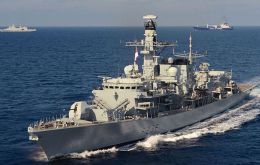
An undetermined number of small Iranian boats Wednesday tried to divert the oil tanker British Heritage of the United Kingdom in the Hormuz Strait but withdrew after dissuasive action from the Royal Navy's HMR Montrose, it was reported. No shots were fired during the incident.
-
Wednesday, June 26th 2019 - 08:50 UTC
US tightens the noose on Iran leaders, including Supreme Ayatollah Khamenei
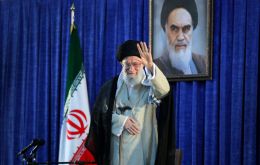
United States president Donald Trump targeted Iranian Supreme Leader Ayatollah Ali Khamenei and other top Iranian officials with sanctions taking a dramatic, unprecedented step to increase pressure on Iran after Tehran’s downing of an unmanned American drone.
-
Monday, June 24th 2019 - 09:40 UTC
US launched cyber attacks against Iranian missile control systems

The United States launched cyber attacks against Iranian missile control systems and a spy network after Tehran downed an American surveillance drone, according to US media reports.
-
Saturday, June 22nd 2019 - 08:56 UTC
Iran conflict: Trump “cocked and locked”, but proved the dove among his hawkish advisors

United States president Donald Trump said on Friday he aborted a military strike to retaliate for Iran's downing of an unmanned US drone because it could have killed 150 people, and signalled he was open to talks with Tehran.
-
Friday, June 21st 2019 - 09:52 UTC
Trump pulls back from a Friday retaliation attack on Iran for the downing of a US drone
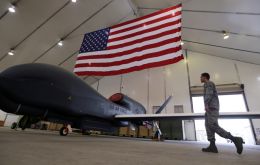
United States President Donald Trump approved military strikes against Iran in retaliation for downing a US surveillance drone but pulled back from launching them on Thursday night after a day of escalating tensions.
-
Saturday, June 15th 2019 - 08:02 UTC
Iran dismisses as “baseless” US accusations of twin attacks on two tankers in the Strait of Hormuz
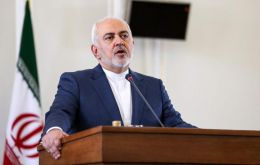
Iran dismissed as “baseless” on Friday US accusations it executed twin attacks that left two tankers ablaze in the Gulf of Oman, raising fears of conflict in the strategically vital waterway.
-
Thursday, May 23rd 2019 - 09:44 UTC
Iran's Supreme Leader announces the demise or Israel and US civilization

Iran's youth will witness the demise of Israel and American civilization, Iran's Supreme Leader Ayatollah Ali Khamenei said on Wednesday in comments published on his official website.
-
Monday, May 20th 2019 - 09:55 UTC
”If Iran wants to fight, that will be the end of Iran”, Trump tells Teheran
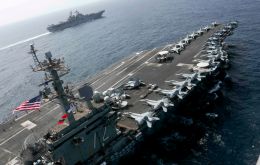
President Donald Trump issued an ominous warning to Iran on Sunday suggesting that if the Islamic republic attacks American interests, it will be destroyed.
-
Thursday, May 16th 2019 - 08:24 UTC
Oil prices edge up on the Iran situation, but inventories are still very high

Oil prices edged up on Thursday to extend gains into a third straight session, as tensions in the Middle East stoked fears of potential disruptions to supply. Brent crude futures were at US$72.04 a barrel at 0110 GMT, up 27 cents, or 0.4per cent, from their last close. Brent closed up 0.7per cent on Wednesday.
